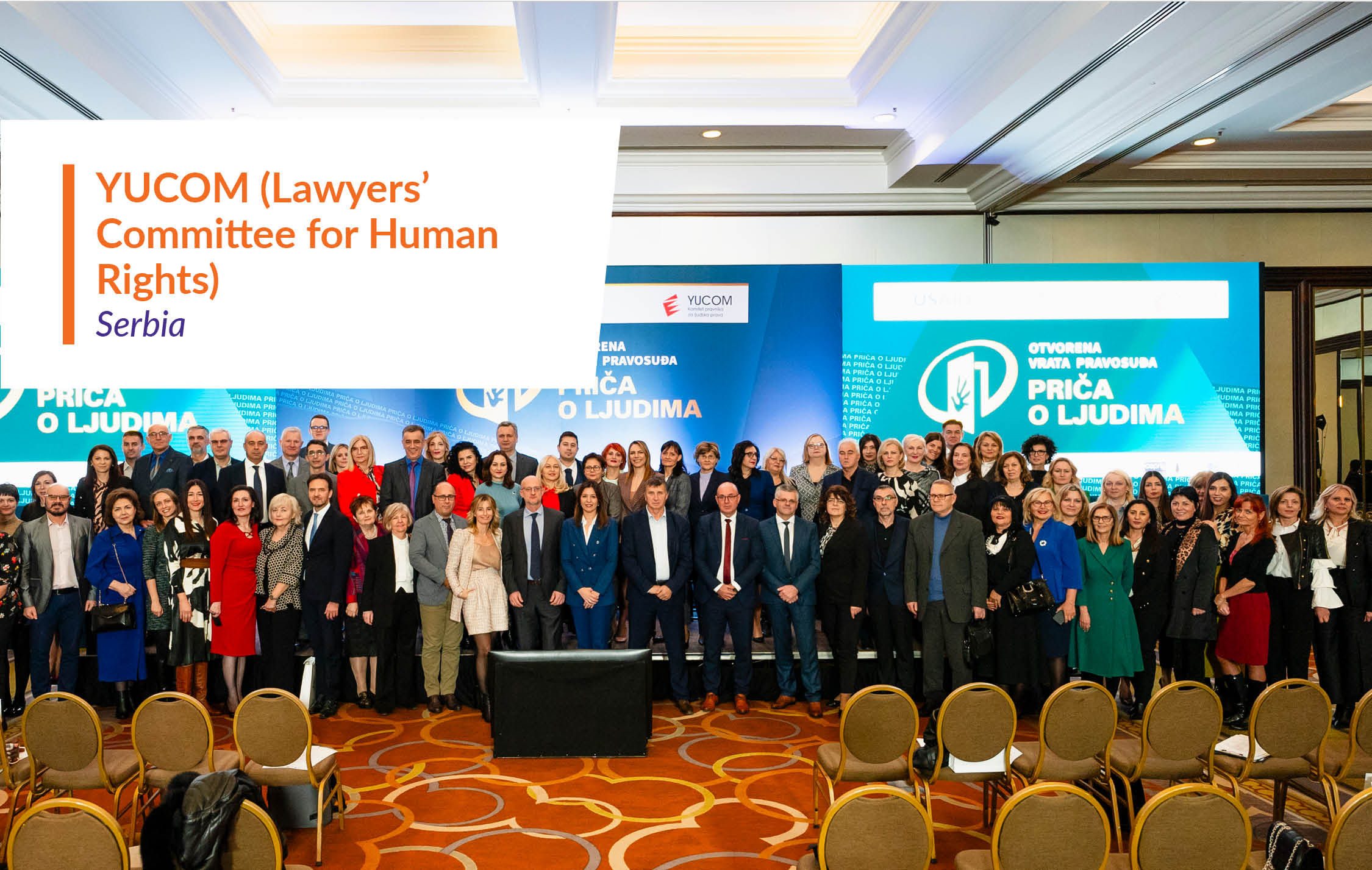Finalist
Justice Institutions
Civic Participation
Education
Judicial Reform
Share this
Contact information

Open Doors of the Judiciary: Increasing citizen trust in Serbia’s judicial institutions
The Problem
General opinions in Serbia about the functioning of the judicial system are considerably more negative than positive: more than 40% of the Serbian population has a negative opinion about the functioning of judicial system, and only 26% of the citizens trust the system. Low levels of knowledge about how the courts operate and misconceptions about the nature of the judicial process have contributed considerably to this crisis of public confidence. Media, meanwhile, generally report on basic court activities but do not play a role in explaining the judiciary’s purpose in Serbian society. Judiciary communications tend to be inconsistent and opaque, and historically there has not been a proactive communications mechanism between the courts and the public. Courts in Serbia do not communicate in a planned and strategic consistent manner, which provides a lack of transparency and there is no proactive sustainable communication mechanism with the public and media.
The Approach
The Open Doors of the Judiciary project, led by the Lawyers’ Committee for Human Rights (YUCOM), focuses on increasing citizen trust in the judiciary through dialogue and communication. The project primarily targets citizens in communities outside of urban centers who have a need to interact with the legal system but are unfamiliar with their rights and seeks to provide citizens with direct insights into how their local judicial institutions function.
One of its primary activities is convening Open Court Days, where citizens and judiciary representatives meet in courts and Public Prosecutors’ offices to discuss relevant community topics. Citizens have the opportunity to speak directly to court officials about their problems, seek solutions, and suggest future topics for these community discussions. Open Court Days take place in over 70 courts and offices across all jurisdictions. The project has also published over 440 blog posts about common legal problems written in plain, accessible language. To make these materials widely available, they partner with prominent newspapers to provide them with a reach to readers across the country at a discount. YUCOM and its partners have also produced 19 different user-friendly guides to educate citizens about how the judiciary operates and their own rights and obligations.
The Impact
-
138 Open Court Days have been organized on over 70 different topics, involving more than 600 judicial representatives and approximately 5,000 citizens.
-
Online Open Court Days attracted between 5,000 to 20,000 attendees per event. Representatives from various legal professions and authorities actively participated, answering citizens' questions, and addressing concerns directly.
-
Research conducted on a sample of 51 Open Court Days confirmed that the meetings have increased citizen confidence in judicial institutions and help citizens better understand how these institutions function.
-
The project's digital platform has over 1.89 million pageviews and 800,000 users. This indicates a significant level of interest and interaction with the provided materials, suggesting that citizens are actively seeking information about their legal rights and the functioning of the judiciary.
-
19 user-friendly guides have been printed in over 50,000 copies and disseminated to courts and public prosecutors’ offices across the country.
The Future
The project will implement additional Open Court Days in new locations and with more legal institutions. They also plan to create an interactive map of free legal aid providers in Serbia, and to collaborate with legal clinics to engage law students in bringing legal topics closer to citizens. Information kiosks will be established in courts to expand the portal’s reach and allow more people to use the system and provide feedback.